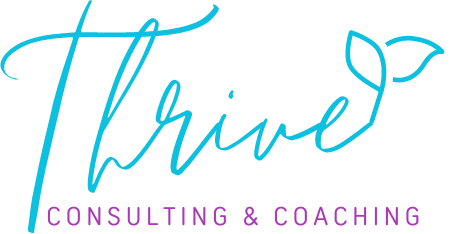My career took a new direction at the time I began managing more than 200 clinical staff members in an ever-changing healthcare industry. Healthcare stands as the fastest-growing sector of the U.S. economy, and healthcare management leads this growth as the industry’s fastest-growing subfield. The stakes remain high—the U.S. Bureau of Labor Statistics projects a remarkable 29% growth in medical and health services manager positions from 2023 to 2033. These professionals earn a median annual salary of $104,280.
My initial leadership role taught me that successful healthcare leadership goes way beyond the reach and influence of clinical expertise. The field demands a unique blend of emotional intelligence and strategic thinking because healthcare revolves around human connections as much as clinical knowledge. My experience showed that leadership qualities in healthcare need deliberate development. Research confirms these skills need the same dedicated learning as any other professional competency. In this piece, I’ll reveal the hidden truths about healthcare management skills that reshaped my leadership approach—lessons I gained while guiding a large clinical team through continuous change.
The reality of leadership in healthcare management
My real-life experience with healthcare leadership caught me off guard. Clinical practice had trained me well, but I found that leading in healthcare needed something completely different from my training.
Why leadership goes beyond titles
Healthcare leadership doesn’t belong only to executives or those with corner offices. Research confirms that true leadership creates meaningful change and influences others, whatever their formal roles. Throughout my career, nurses without management titles showed remarkable leadership skills when they guided teams through critical situations. Every person knows how to lead and influence others, no matter where they stand in the organization. This leadership shows up through mentorship, coaching, sponsorship, and allyship—sometimes all at once.
The shift from authority to collaboration
Healthcare has seen a radical alteration from traditional hierarchical leadership to collaborative models. Leadership once focused on authority and control, but now emphasizes shared decision-making and collective purpose. Today’s most effective healthcare organizations know that collaborative leadership brings people together to set direction, line up goals, and build commitment across teams. This change recognizes that complex healthcare systems need more than one leader’s knowledge—different points of view become vital for success.
How managing 200+ staff changed my point of view
Leading a large clinical team completely changed how I understood leadership. Trust, I learned, flows both ways—downward based on competence, and upward from team members’ views of a leader’s ability, caring nature, and integrity. On top of that, I found that when teams shared decisions and planning, members took calculated risks that ended up creating innovative, patient-focused services. A collaborative approach became the life-blood of successful healthcare initiatives, even while balancing regional plans with local community needs.
These experiences taught me to see healthcare leadership as a partnership rather than a position. It needs emotional intelligence, clear communication, and steadfast dedication to shared goals.
8 essential healthcare leadership skills I learned
My experience managing a clinical team of 200+ professionals taught me leadership lessons that no textbook could prepare me for. Through trial and error, I found eight key healthcare leadership skills that made the biggest difference.
1. Emotional intelligence under pressure
Emotional intelligence is the life-blood of effective leadership in healthcare. It includes self-awareness, self-regulation, social awareness, and relationship management. This skill became priceless during crises when staff faced overwhelming stress. Studies show emotional intelligence matters twice as much as technical skills or IQ at any job level. Reading my team’s emotional signals helped me tackle burnout before it could hurt patient care.
2. Clear and adaptive communication
Knowing how to communicate in healthcare directly affects biological and functional health outcomes. I learned to adjust my communication style for different audiences—from physicians to administrative staff. Active listening became my strongest tool, especially when team members felt unheard and needed to voice concerns. Better communication led to fewer errors and smoother coordination between departments.
3. Strategic thinking in high-stakes environments
Strategic thinking means seeing future challenges while arranging daily decisions with long-term goals. This skill helped me spot trends, plan for staffing needs, and fix issues before they grew bigger. Good strategic planning needs a clear scope, environmental assessment, and well-laid-out implementation paths.
4. Conflict resolution that builds trust
High-stress healthcare environments breed conflicts. Good conflict resolution needs patience, active listening, and finding solutions that benefit everyone. I found that handling conflicts like medical diagnoses—finding the root cause first—created longer-lasting solutions. Using mediation techniques turned disagreements into chances for team growth.
5. Time management when every second counts
Research shows good time management improves productivity, performance, and patient care quality. The Eisenhower framework helped me handle tasks better: urgent and important first, schedule important but non-urgent tasks, pass on urgent but non-important work, and skip or delay everything else. This method cut down overtime and staff burnout.
6. Cultural humility in diverse teams
Cultural humility—built on self-reflection, valuing others’ expertise, and balanced relationships—proved vital for leading diverse teams. Unlike cultural competence that focuses on knowledge, cultural humility emphasizes process and capabilities. This approach created a space where team members felt valued whatever their background or role.
7. Coaching and mentoring future leaders
Coaching lets healthcare managers find and think about their leadership styles while building resilience and confidence. Mentoring helped me develop future healthcare leaders by sharing what I learned and offering guidance based on my experience. This investment boosted team performance and kept leadership quality strong.
8. Decision-making with limited information
Healthcare often forces decisions without complete information. Using structured processes helped me make better choices by reducing cognitive bias. Smart decision-making means matching decision types to the right processes, spotting personal bias, and understanding how leadership shapes team decisions. This approach improved both patient care and business results.
How these skills improved team performance
The eight leadership skills didn’t just improve my capabilities—they changed our team’s performance in ways we could measure.
Reduced staff turnover and burnout
Healthcare typically sees turnover rates of 20.7%. Our team’s focus on emotional intelligence and cultural humility helped bring down staff departures. The cost savings were notable since replacing one registered nurse costs between $28,400 and $51,700. We managed to keep staff wellbeing high while reducing operational costs by tackling burnout—which affects 53% of physicians—through balanced shift lengths and mental health support.
Improved patient care coordination
Better communication skills made a dramatic difference in care coordination. The team met patient needs better as we shared information with the right people at the right time. We created seamless experiences throughout the care continuum by using structured teamwork approaches and specific coordination activities that established accountability and helped with care transitions.
Faster response to emergencies
The team responded more effectively during crises thanks to strong strategic thinking and decision-making skills. We set up incident management teams at all levels, which made leadership more effective during emergencies. Regular supportive supervision became a vital part of emergency response, and we kept critical services running even under pressure.
Higher staff engagement and morale
The leadership approach boosted employee engagement remarkably. Research shows engaged healthcare employees lead to better patient satisfaction, increased safety, and higher quality care. A Gallup poll of 200 hospitals revealed higher nurse engagement resulted in lower patient mortality. The team’s performance improved by approximately 14% through our investment in staff development.
Developing leadership qualities in healthcare
Healthcare leadership development demands deliberate effort and constant dedication. My trip showed me that leaders must develop their qualities throughout their careers.
Learning from feedback and mistakes
Feedback helps healthcare professionals grow. I found it hard to accept constructive criticism at first, but research shows that feedback substantially contributes to competence and confidence at every career stage. A systematic approach to processing feedback helped me spot gaps between my current and desired performance. I started asking for feedback from peers, patients, and subordinates, and saw each interaction as a chance to improve. Self-reflection became crucial when I accepted feedback, which turned my mistakes into valuable lessons.
Using mentorship to grow
Mentorship changed how I developed as a leader. Healthcare executives in mentorship programs show better leadership awareness, stronger motivation, and higher confidence. Mentoring sessions create an environment where both parties learn from exchanging ideas. Professional healthcare associations note that mentorship helps curb burnout, improves retention, and stimulates career growth. I sought mentors and became one myself—and found that helping others made me a better leader.
Investing in leadership training programs
Structured training programs offer clear paths to skill development. Research indicates these programs should mix evidence-based frameworks with ground applications. Good programs include business strategy, economics, and digital health components tailored for healthcare professionals. The best training uses hands-on tools and capstone projects that apply knowledge to ground challenges.
Balancing clinical and administrative roles
All but one of these physician leaders keep some level of patient care while handling leadership duties. A striking 96% say clinical work makes them better leaders by giving them credibility and insight into frontline problems. Top healthcare leaders spend at most 25% of their time on direct patient care. Success in these dual roles needs clear expectations, solid decision-making, and open team communication. As my responsibilities grew, time management and smart delegation became crucial.
Conclusion
Healthcare leadership goes way beyond clinical expertise or formal titles. My experience managing 200+ clinical staff taught me that emotional intelligence, communication, and strategic thinking are the foundations of effective healthcare leadership. These skills need intentional development rather than assuming they come naturally with a promotion.
Eight core skills revolutionized our team’s performance: emotional intelligence, adaptive communication, strategic thinking, conflict resolution, time management, cultural humility, coaching, and decision-making with limited information. Our staff turnover dropped by a lot while patient care coordination got better. The team’s emergency response time improved and we managed to keep high engagement levels in all departments.
My biggest lessons came from feedback. Each mistake gave me a chance to improve my leadership abilities. Mentorship became equally valuable – both getting guidance and helping others created an ongoing growth cycle that helped our whole organization.
Healthcare leadership will keep evolving as the industry grows at unprecedented rates. Notwithstanding that, human connection, emotional intelligence, and strategic vision remain core leadership skills. Finding the right balance between clinical expertise and leadership duties takes conscious effort, but this balance ended up creating better healthcare leaders who understand frontline challenges firsthand.
Becoming a skilled healthcare leader might look overwhelming at first. With consistent practice and growth, these skills become natural—changing not just your career but also the lives of patients and staff who rely on thoughtful, compassionate leadership daily.



